Talking watches are a cutting-edge tools for a variety of different people. However, it is important to note that the primary users of these watches are people who have trouble reading small print, or those who are are visually impaired.
With these watches, you don’t need to interpret the time visually. Rather, they tell them the time audibly. These watches are also beneficial to people who prefer auditory information to visual information, or those who need hands-free accessories as they are constantly moving.
These cutting-edge watches provide their wearers with a priceless sense of independence and functionality. As they eliminate the need for ongoing timekeeping assistance, they enable users to manage their time by themselves.
Instead of relying on others or struggling to see the time, people with visual impairments can just press a button to hear the time. Thanks to this straightforward feature, easily keeping track of time can significantly improve people’s quality of life.
Our in-depth review series examined some of the top talking watches on the market. Our favourite products were carefully chosen rated based on user feedback, popularity, and functionality.
Our reviews are intended to offer a thorough and unbiased assessment of each product, assisting potential customers in making an informed choice. To ensure a comprehensive analysis, each watch has been evaluated on many factors. These include ease of use, voice clarity, battery life, and extra features.







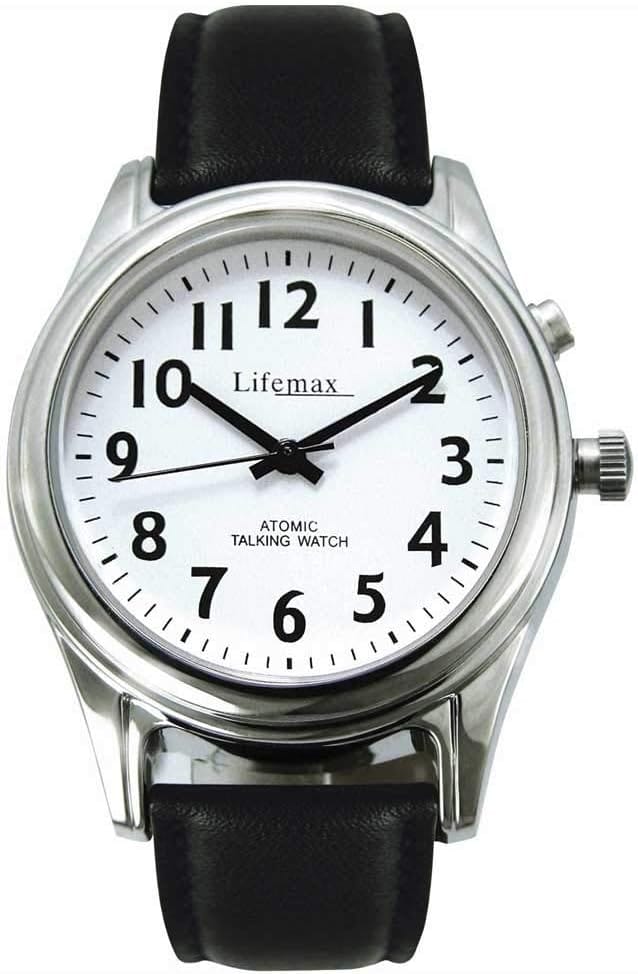
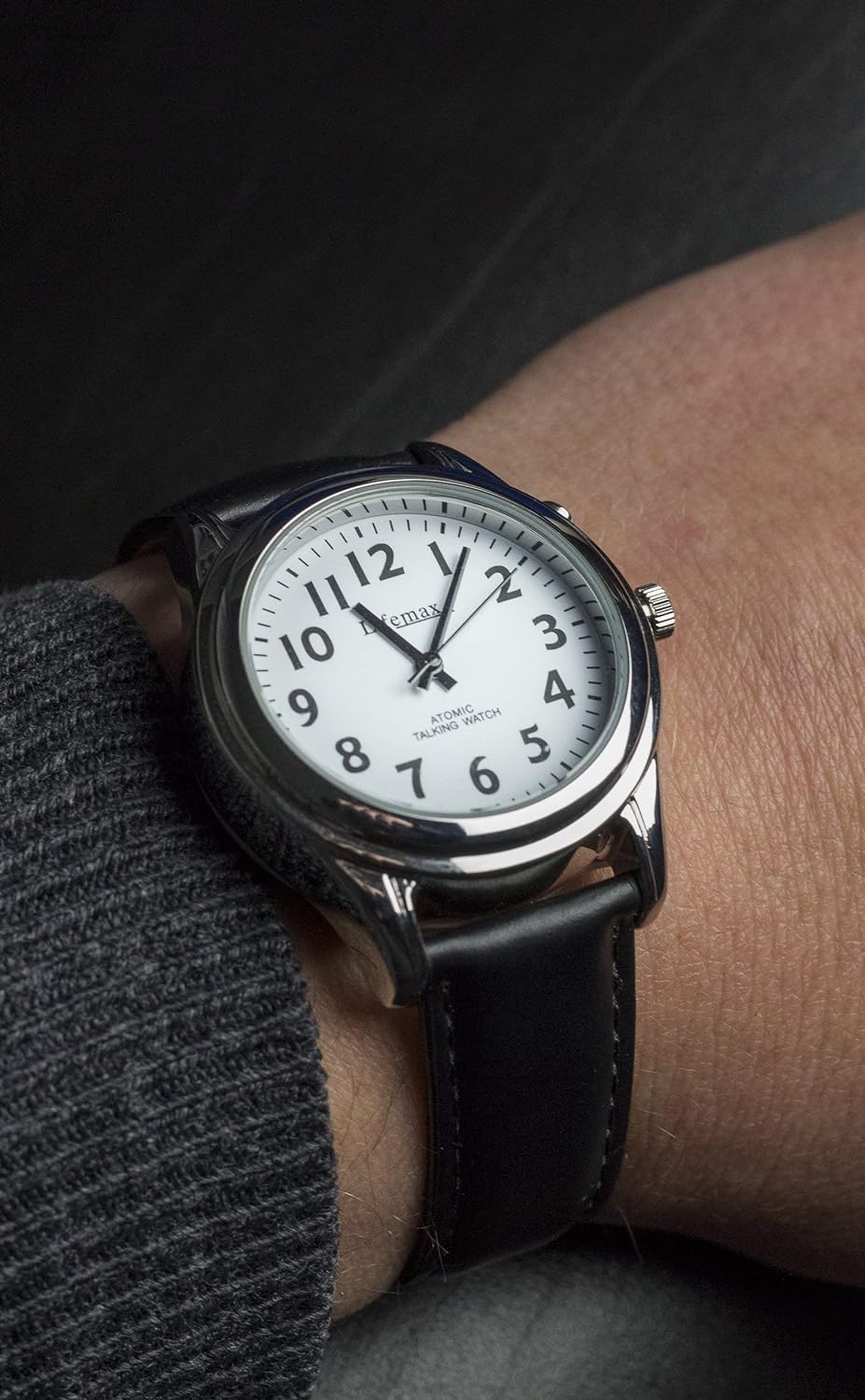
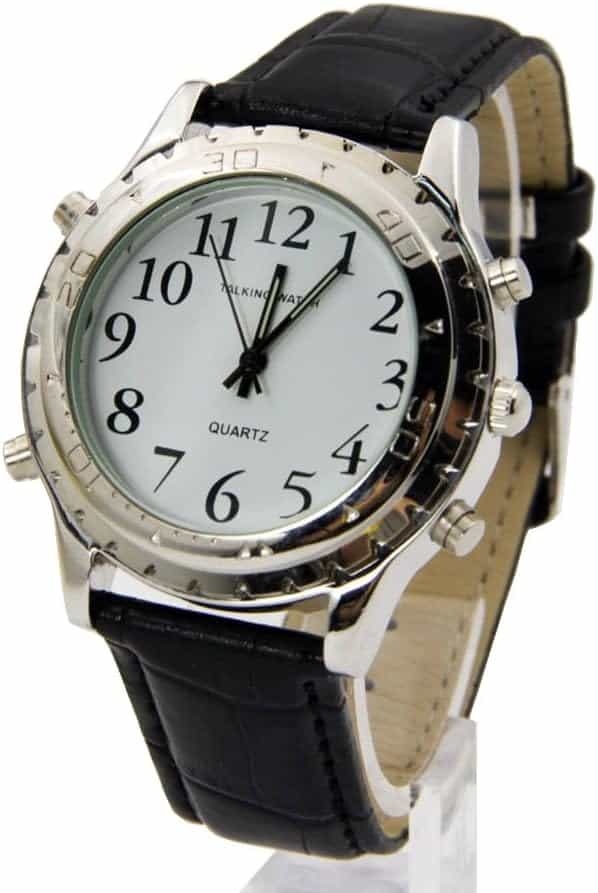
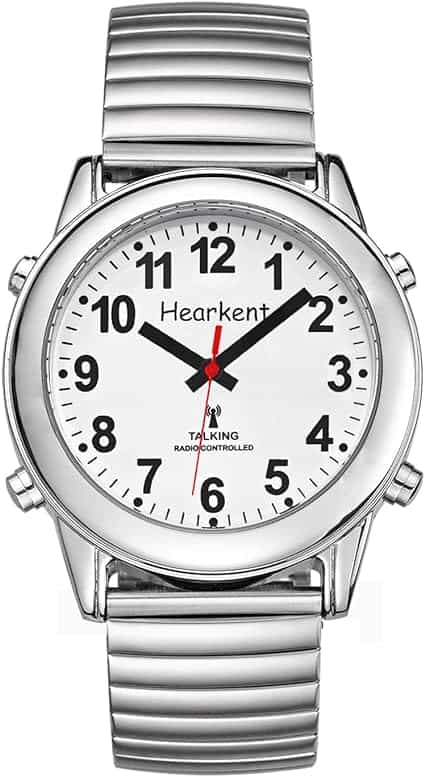
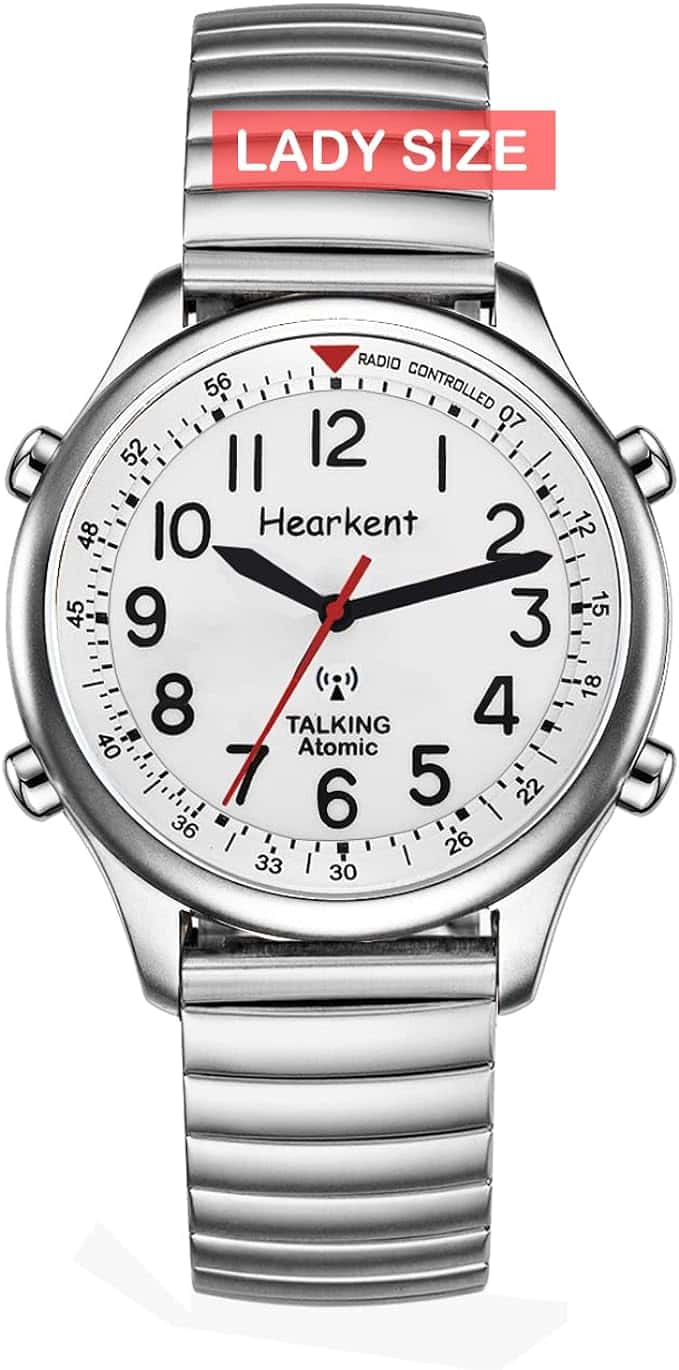
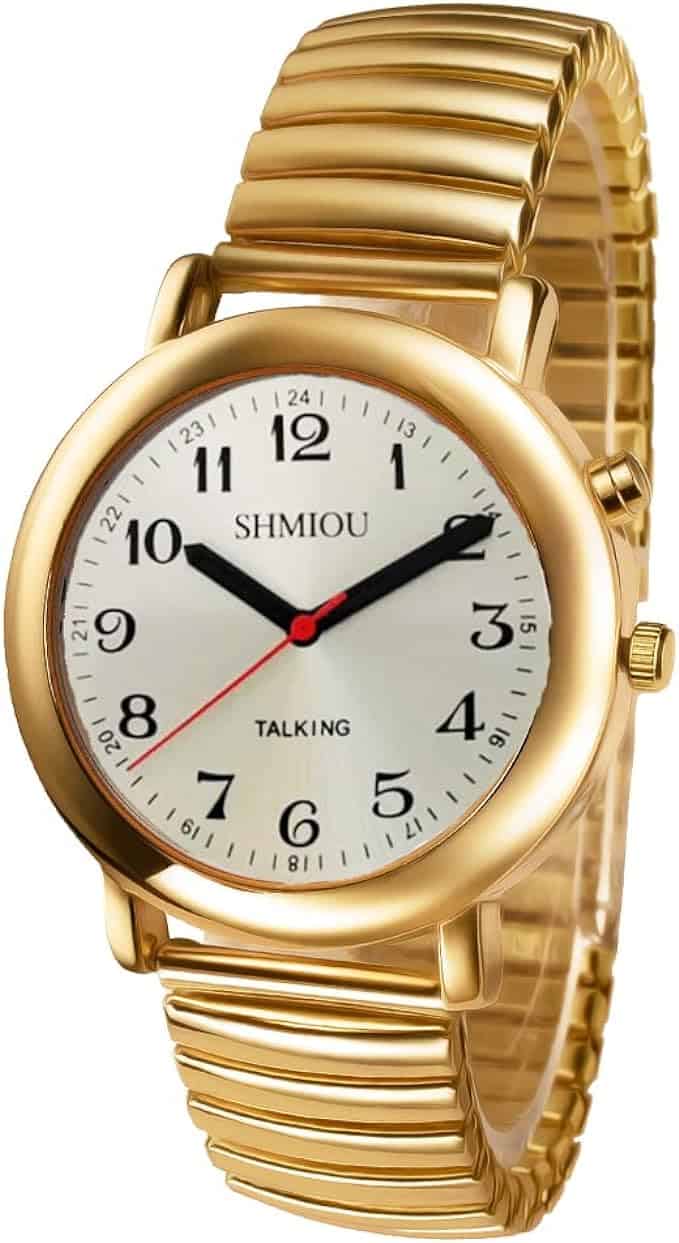
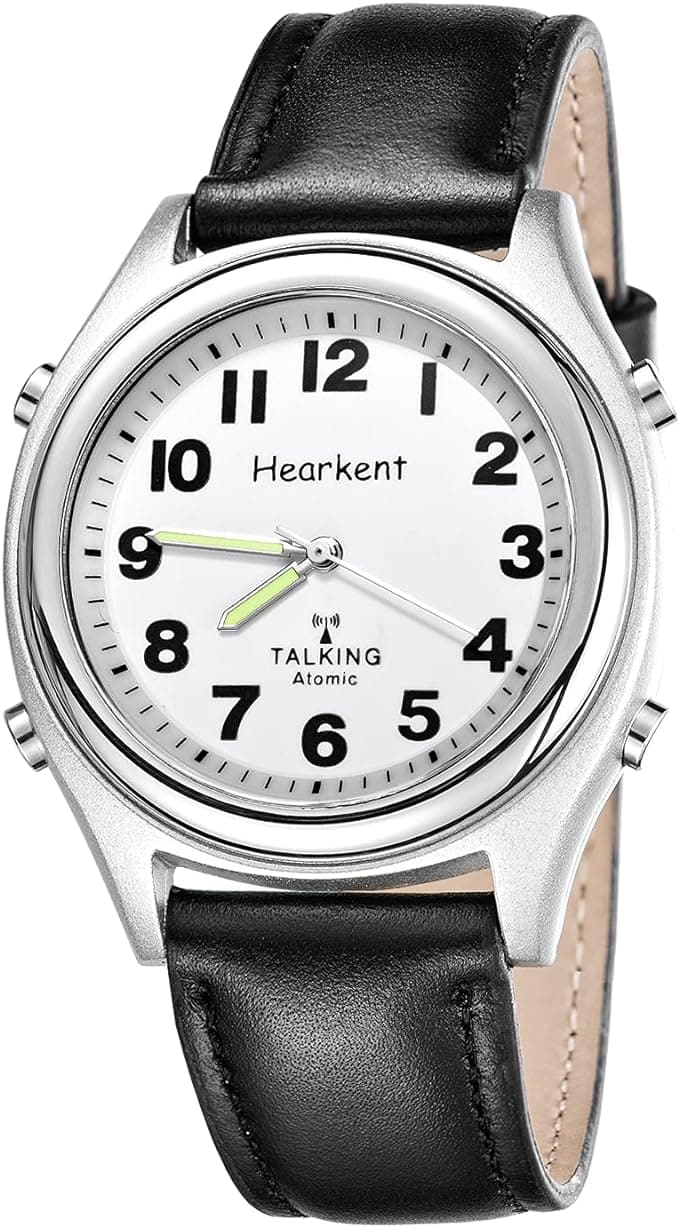
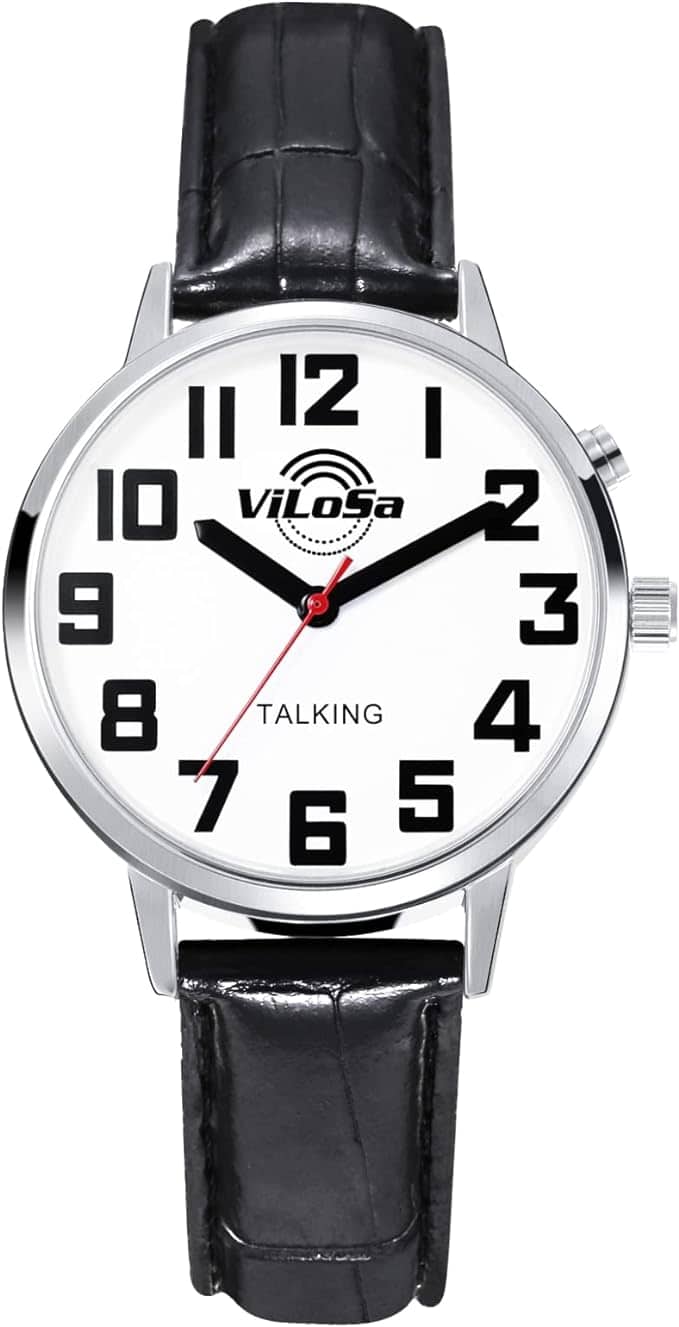
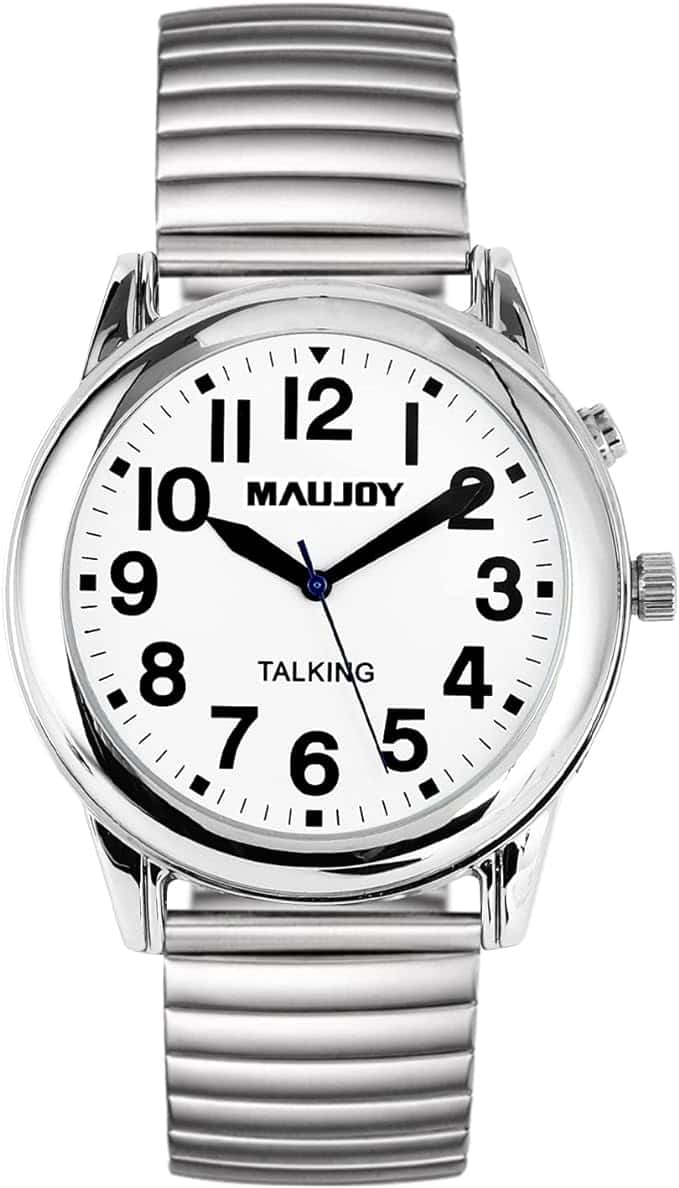
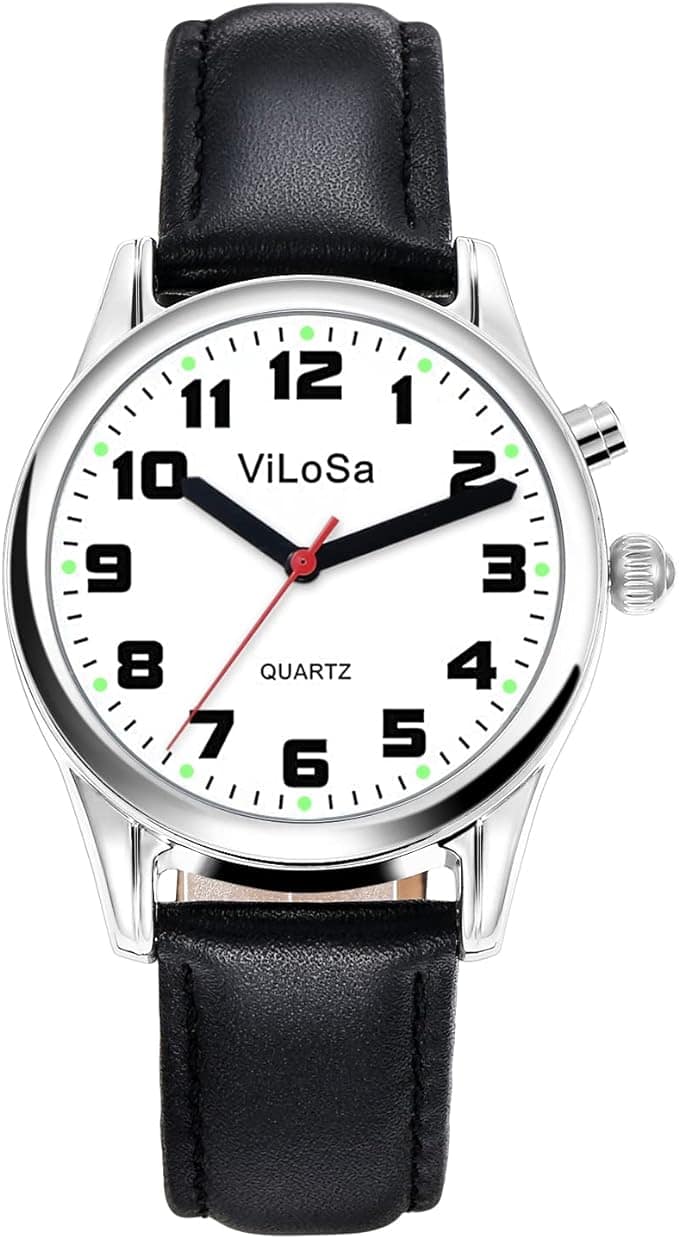
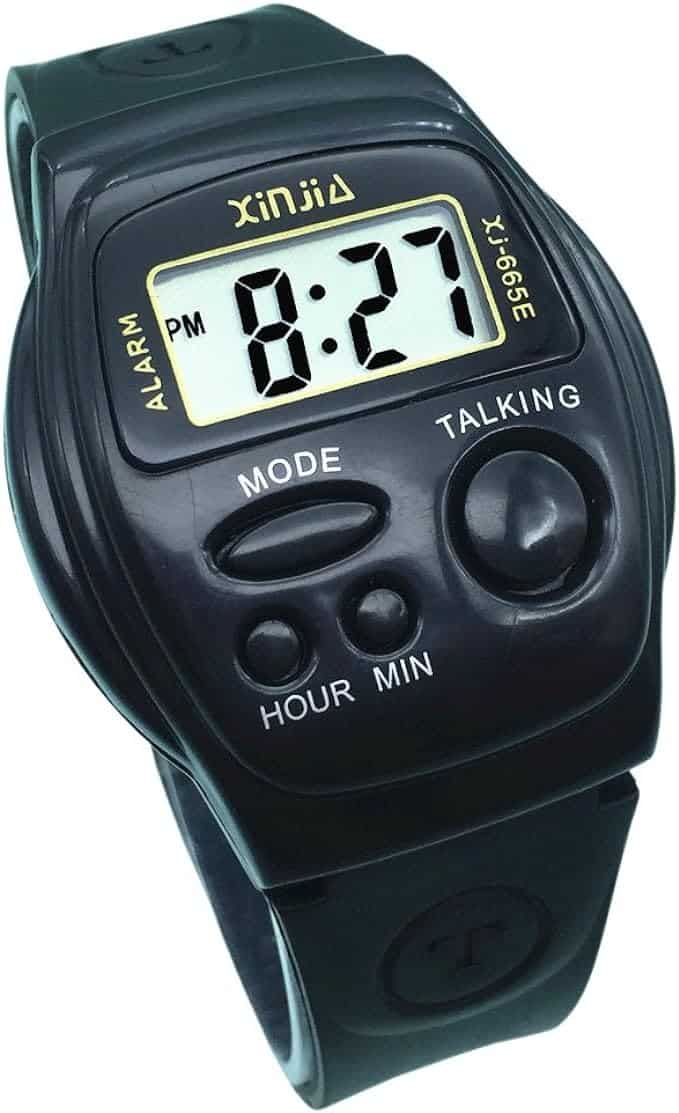
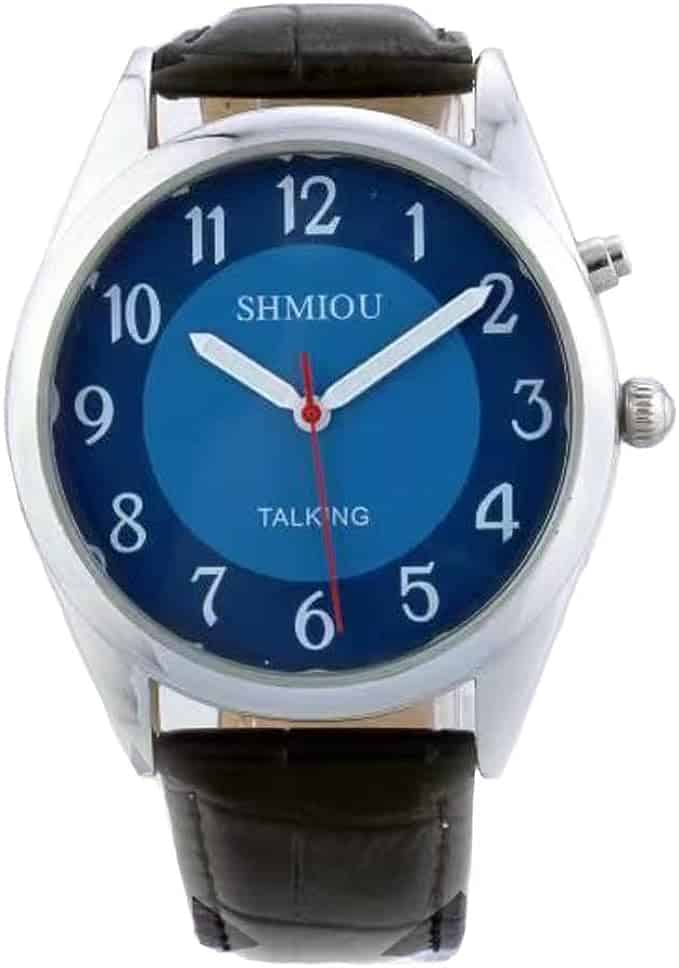
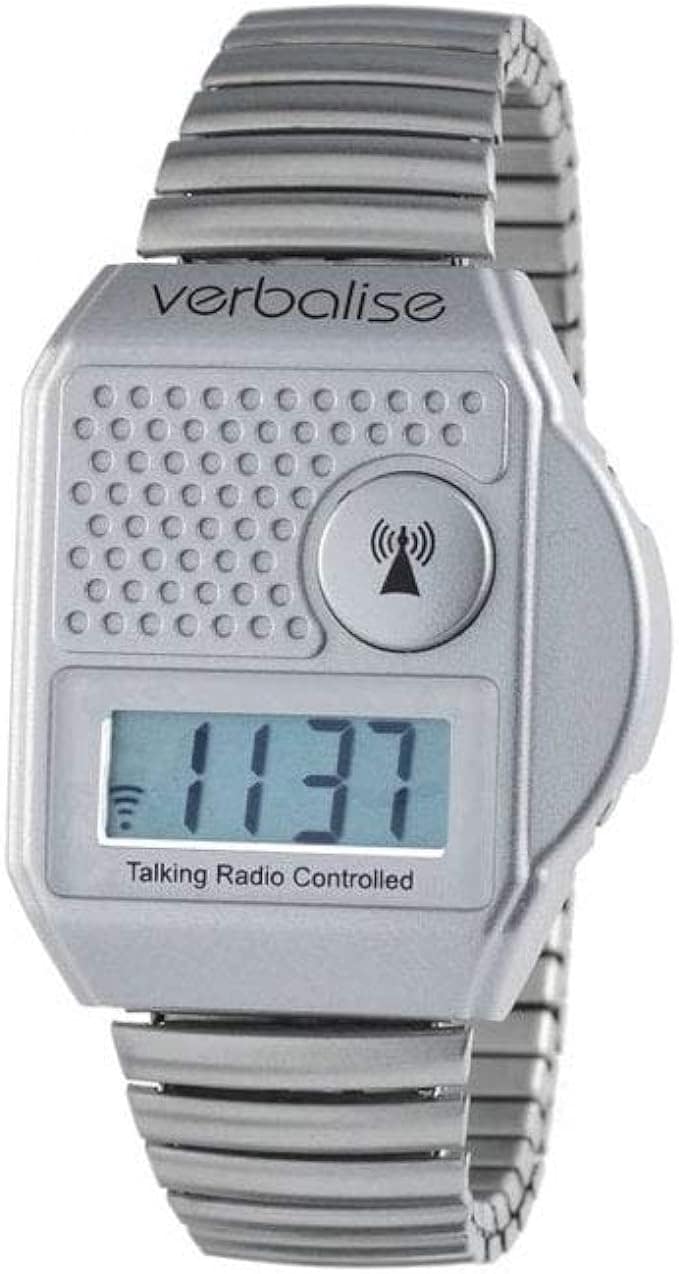
Although both talking watches and Apple Watches have advantages, choosing between the two frequently depends on the user’s requirements. Talking watches offer a straightforward and efficient solution for the visually impaired, providing necessary assistance with time keeping.
When a button is pressed, these watches feature an audible English voice that announces the time. For people with poor vision or total blindness, this feature is beneficial.
Alternatively, Apple Watches have numerous features beyond timekeeping. These include call-making and call-receiving capabilities, health monitoring and mobile notifications. However, the small screen and various features can prove challenging for people with vision impairments.
Whilst Apple Watches offer a talking clock feature, it is not their main selling point. Therefore, these watches might not be as user-friendly as talking watches. It’s also important to remember that talking watches are typically a lot less expensive than Apple Watches.
Therefore, talking watches are a more viable option for a broader range of people. Thanks to the availability of VAT relief for them, talking watches are made even more affordable for visually impaired people.
Finally, customer service and delivery information are crucial when buying any product. It is key to note that manufacturers of both Apple and talking watches typically provide dependable customer support and delivery choices. However, prospective customers should always confirm that they are buying from a reputable company before making a purchase.
When buying a talking watch, there are several important characteristics to keep an eye out for. Firstly, remember that voice clarity is crucial. This means that the watch should have a loud voice that is understandable and audible in various settings.
Secondly, the interface of the watch should be straightforward and user-friendly. As the elderly or people with vision impairments wear these products, they may struggle with navigating overly complex features. As a result, using the watch function should be simple and easy.
In addition, take into account the watch’s extra features. For instance, a radio-controlled atomic clock is a feature found on some talking watches and works to provide accuracy. This means that even when travelling across time zones, the watch automatically updates to the right time. Some models also include multiple alarms and an hourly time announcement.
Finally, it’s crucial to think about the watch’s design. Many talking watches feature a stylish black dial and clear analogue face, providing a classic accessory.
For people with vision impairment, talking watches are a form of necessary assistive technology. They are made to provide audible and clear time announcements, avoiding the need for visual timekeeping.
As they no longer need support to keep track of time, visually impaired people benefit significantly from this feature’s increased independence and confidence.
To make reading the time easier for people with low vision, some talking watches feature large numerals and clear analogue faces.
The Royal National Institute recommends a large selection of talking watches for the blind (RNIB). These watches meet the institute’s standards of quality, meaning that they can effectively serve the needs of people who are blind or visually impaired.
Besides talking watches, other related products are available for people with vision impairments. These include watches with Braille, featuring raised dots that can be felt to interpret the time.
Dementia sufferers may also benefit from talking watches. As this condition, can lead to trouble with keeping the time, people may benefit from the unmistakable voice announcement of the time.
For people with cognitive impairments, the ease of use, often just a button press, is ideal. In addition, multiple alarms are also included with some talking watches. These can be configured to remind the user of significant occasions or duties, such as taking medication.
This feature can offer independence and peace of mind, whilst also positively impacting a dementia patient’s daily activities. The design of talking watches also prioritises usability and simplicity. With a plain analogue face and a single button for time announcement, the plan is frequently minimalist. This makes them simpler to use and less likely to confuse.
Furthermore, talking watches can be a fantastic substitute for a standard wall clock for dementia patients. It can be soothing and reassuring to hear the same voice reading the time, meaning that it provides a helpful tool for managing people’s daily lives.
UK Care Guide is really proud to have been featured on some of the UK’s leading websites.

















Jane is one of our primary content writers and specialises in elder care. She has a degree in English language and literature from Manchester University and has been writing and reviewing products for a number of years.
